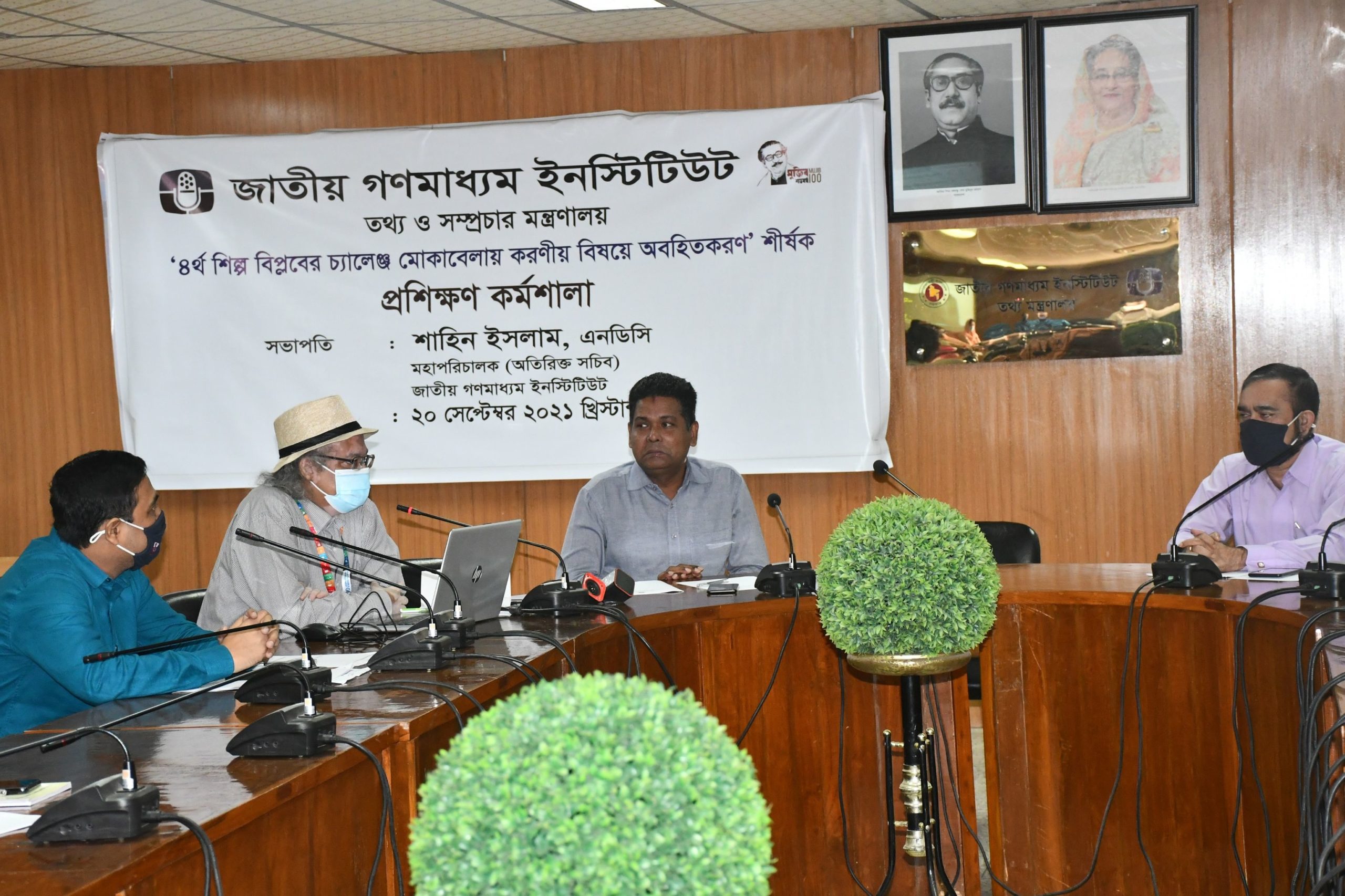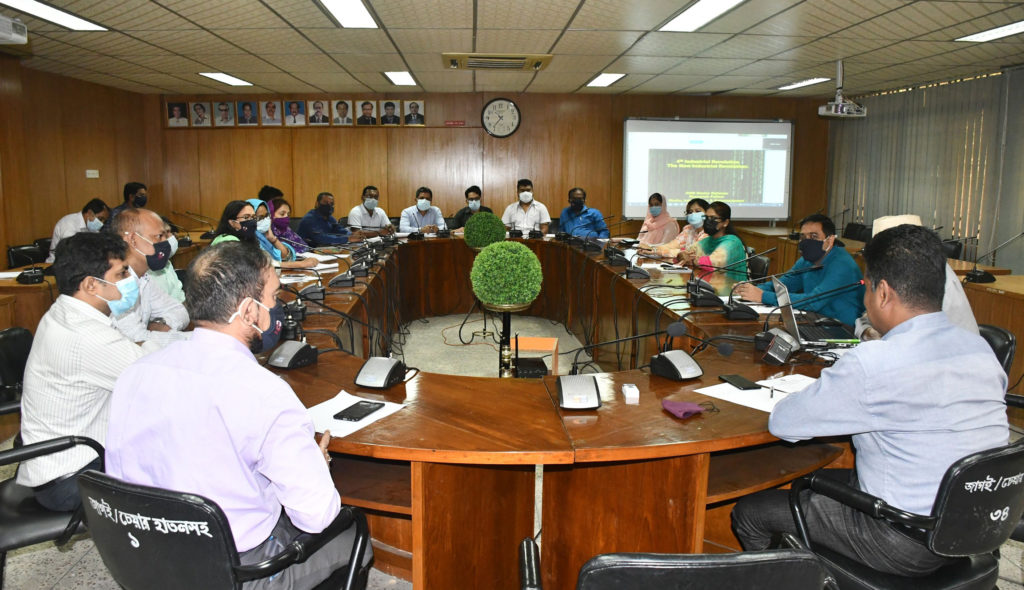A high level training workshop on Unlocking the Potential, Facing the Challenges & Creating Awareness of the Fourth Industrial Revolution was organized by the National Institute of Mass Communication (NIMC) of Ministry of Information & Broadcasting on 20 September, 2021 at NIMC HQ, Dhaka, Bangladesh.
The workshop was organized under the Guidelines of the e-Governance and Innovation Action Plan Implementation and Evaluation 2021-22 of the Cabinet Division of the Government of the People’s Republic of Bangladesh.
The fourth industrial revolution (4IR) is changing the landscape of Bangladesh economy and Media, Information & Entertainment sector. The fourth industrial revolution (4IR) has a great impact on the economy, Media, Information & Entertainment sector as well as it offers substantial benefits.
Therefore, Hon’ble Prime Minister H.E. Sheikh Hasina has pledged to the fourth industrial revolution (4IR) through election manifesto 2018 “Five G (5G) will be on run within 2023. Future technologies like artificial intelligence, robotics, big data, blockchain, and IoT will be widespread.” Additionally, she pledged to continue efforts & emphasised through Eight Five Year Plan (July 2020- June 2025).

Ms. Shahin Islam, NDC, Director General (Additional Secretary), National Institute of Mass Communication (NIMC) of Ministry of Information & Broadcasting, Government of the People’s Republic of Bangladesh presided over the workshop.
AHM Bazlur Rahman, Chief Executive Officer of Bangladesh NGOs Network for Radio and Communication (BNNRC) and Policy Research Fellow, Shaping the Future of Media, Information & Entertainment in the Era of the Fourth Industrial Revolution (4th IR) of Bangladesh UN Internet Governance Forum was conducted the workshop as the resource person. He is one of the contributor of WhiteBoard Magazine a quarterly policy magazine by the Centre for Research and Information(CRI).
The Fourth Industrial Revolution (4IR) has the potential to transform Bangladesh’s Media, Information & Entertainment sector. The Fourth Industrial Revolution (4IR) has radically altered the ways in which we communicate with each other and gather information. Social media platforms have created a complex information ecosystem that is both a blessing and a curse for free and independent media outlets. Digital technologies have created unprecedented opportunities for reporting and distributing journalistic content.
For many, digital innovations hold enormous potential to remake the media landscape in Bangladesh. At the same time, in this new age of misinformation and disinformation, traditional media outlets are increasingly under threat, as members of populist movements attack their credibility in digital spaces. With the destruction of their traditional business models, free and independent media outlets are now struggling to survive. The digital revolution is far from over: Driven by technological innovation, it appears to be accelerating in the era of the The Fourth Industrial Revolution (4IR).
Whilst in the past, Bangladesh was unable to benefit and capitalise on the opportunities brought about by previous industrial revolutions, the National Institute of Mass Communication (NIMC) of Ministry of Information & Broadcasting has taken a great and pioneering stand to go beyond the hype and identify the best practices for the Fourth Industrial Revolution(4th IR) adoption inline with the Media, Information & Entertainment sector in Bangladesh and the South Asia.
What the Fourth Industrial Revolution is and the nature and impact of the Fourth Industrial Revolution were discussed at the first part of the workshop. Besides this, the impact of the Industrial Revolution on the economic, business and industrial, national and indigenous levels, society and individual levels, including the physical, digital and biological contexts – all these were inter-actively discussed in detail.
In the second session preparation of NIMC, challenges, and wayforward to overcome public service media, private media & community services media and information, and entertainment in the era of the Fourth Industrial Revolution were discussed with the participatory manner. Subsequently, emphasis was put on organizing separate workshops on emerging technologies like Blockchain, IoT, Bigdata, Augmented reality, Cloud, Over the Top (OTT), Social media monitization and Artificial intelligence in the Media, Information & Entertainment sector.
At the end of the workshop, senior officials of the NIMC shared their experiences and said, “Through today’s workshop, we have learned the tasks of NIMC in tackling the challenges of the Fourth Industrial Revolution and will be able to plan for future course of action”.
